
views
Doing Home Care

Arrange a ride home from the hospital. After the tonsillectomy, you may feel groggy and in pain. Prepare for your recovery by arranging a ride home from the hospital after the surgery. Ask a friend, family member, or roommate to pick you up. You can then head right home to recovery fully from the tonsillectomy.

Drink lots of water. Stay hydrated by having lots of water after the operation. Have eight to ten glasses of lukewarm or cool, filtered water. Keep a glass of water by your bed or couch and carry a water bottle with you if you are moving around your house. Avoid hot liquids such as hot chocolate, coffee, or tea for the first week. Hot liquids can irritate your throat.
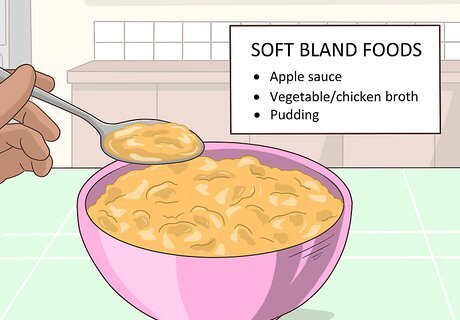
Have soft, bland foods. Bland foods that are soft and easy to swallow are the best options post-surgery. Have applesauce, vegetable or chicken broth, baby food, baby rice, and pudding. You can also have soup, such as a blended vegetable soup. Go for foods that will provide nutrients and energy, without irritating your throat. Avoid acidic, spicy, and crunchy foods, as they can cause pain and bleeding. You can also try sucking on ice pops to help soothe the pain. If you are in a lot of pain after the tonsillectomy, you may need to arrange for someone to help you prepare food for you for the first several days. Ask a friend, partner, or roommate to help you.
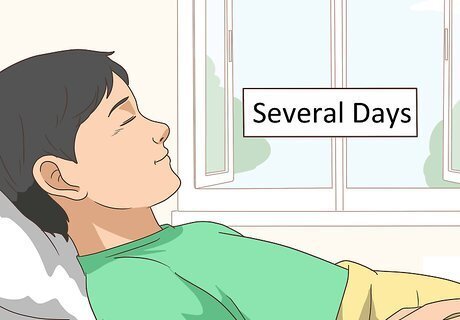
Rest for several days. Stay in bed during the first several days after the tonsillectomy. Avoid strenuous activities like running and bike riding for at least two weeks post surgery. Try not to return to work for the first week and rest in bed or on the couch instead. You can usually return to normal activity, such as work, after you can eat a normal diet, sleep through the night, and do not need to have pain medication. Your doctor can also tell you when you are well enough to return to normal activity.
Taking Medication
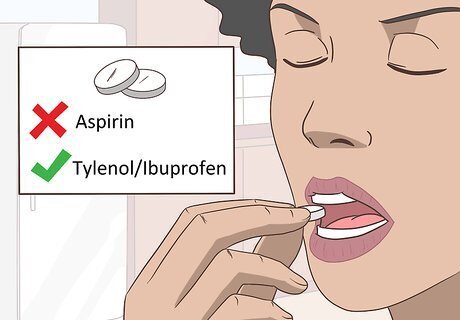
Have pain medication. Take over the counter pain medication to help ease any discomfort. Do not take aspirin, as this can increase your risk of bleeding. Instead, have NSAIDs (Non-Steroidal Anti-Inflammatory Drugs) like Tylenol or Ibuprofen. Always follow the dosage instructions on the label. Do not take more than recommended. Have pain medication with a meal or food to help your body digest it properly.
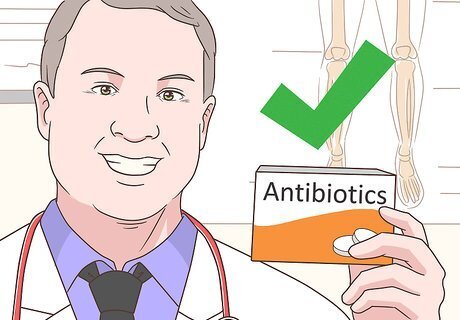
Take antibiotics, if necessary. Most people who have a tonsillectomy are put on antibiotics to help prevent infection. If you are at risk of infection, your doctor may also give you antibiotics to take as part of your recovery. Take them according to your doctor's instructions. You cannot have alcohol when you are on antibiotics. You may want to take probiotics along with the antibiotics to help your body recover.
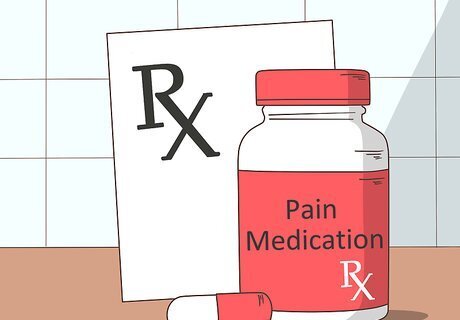
Get prescription pain medication from your doctor. If your pain is severe, your doctor may give you prescription pain medication. This is not usually done unless your tonsillectomy is causing you major pain, or you have other health issues that require prescription pain medication. If the pain is severe and does not go away with pain medication, you should see your doctor for a check up. Extreme pain after the first 48 hours may be a sign that your tonsillectomy is not healing properly. Your doctor may prescribe an analgesic throat spray for the back of the throat, too. This will encourage healing and cut down on the pain.
Seeing Your Doctor
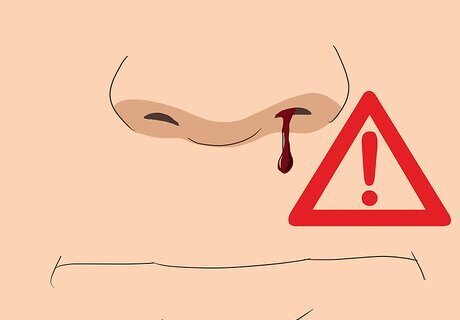
Go to the doctor if you notice any excessive bleeding. If you notice a good deal of blood and bright red spots in your saliva or coming from your nose, go to the emergency room right away. Speak to your doctor about the issue. You may need surgery to stop the bleeding. Small specks of dark (coagulated) blood from your nose or in your saliva is normal, so too small spots of red (fresh) blood. Bleeding tonsils yield about the same amount of blood as you would experience in a nosebleed. However, large amounts of bright red blood in big spots or specks is a cause for concern.
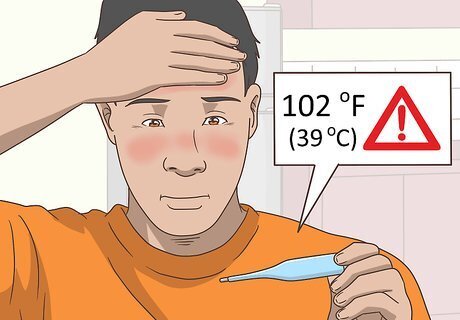
See your doctor if you have a high fever. If you have a fever that is 102 °F (39 °C) or higher, go see your doctor. A high fever is usually a sign of infection and requires immediate treatment.
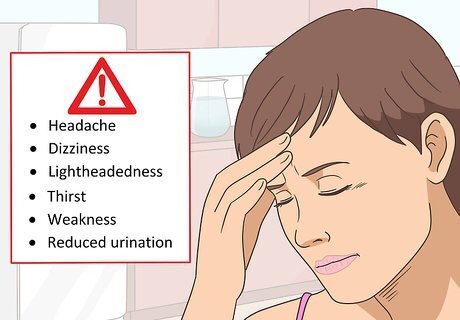
Go to the doctor if you experience dehydration. Signs of dehydration include headache, dizziness, lightheadedness, thirst, weakness, and reduced urination. If you notice you are feeling dehydrated, speak to your doctor.
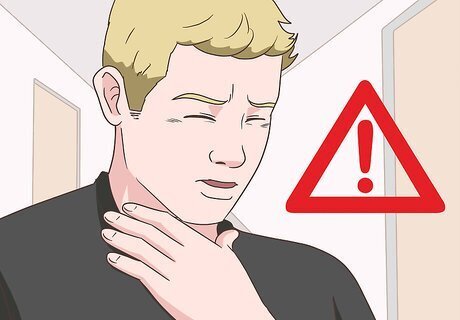
See your doctor if you have breathing issues. It is normal to snore or having noisy breathing during the first week of recovery. But if you experience difficulty breathing, go see your doctor.

















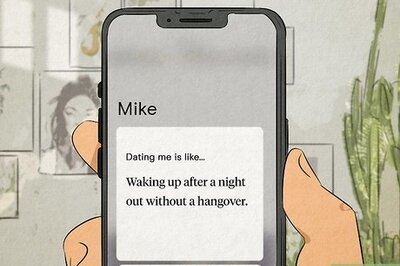
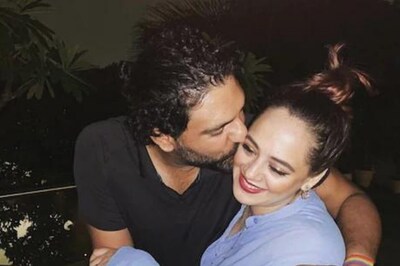

Comments
0 comment